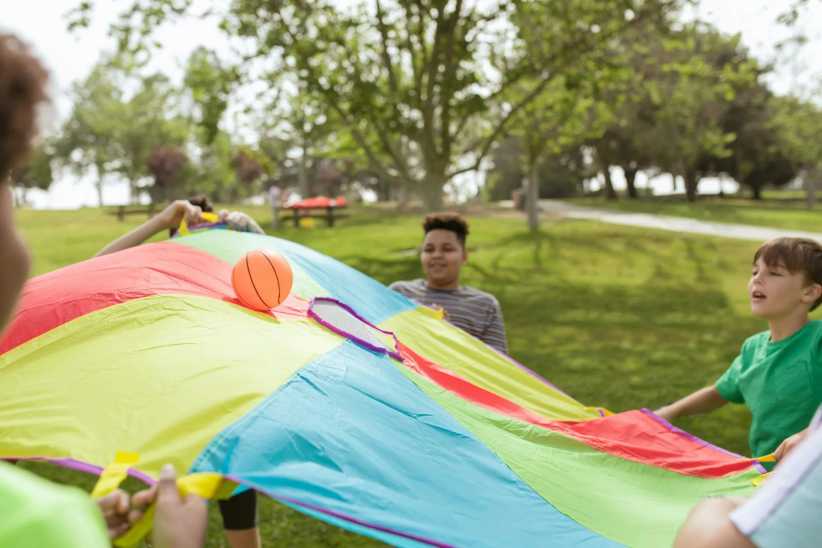Have you ever asked your teen the age-old question, “If your friends were jumping off a bridge, would you?” You may have been exasperated with your teen blindly following a friend straight into a troublesome situation. Perhaps he dared to take the car out past curfew because a friend called and begged to be picked up for a party. Maybe your teenage daughter decided to start dressing like a group of friends whose school garb looks like it belongs on a beach.
Teens follow the crowd because they want to be accepted, but parents want their teens to make good choices and avoid succumbing to peer pressure. It takes a teen with an exceptionally strong personality — a leader — to oppose a peer group and have faith in his individual ideas and values.
Becoming a leader
Is leadership learned or an inherent part of someone’s personality?
“Leadership is learned behavior,” says Susan Kuczmarski, EdD, author of “The Sacred Flight of the Teenager: A Parent’s Guide to Stepping Back and Letting Go.”
“It is developed through experience. The most effective way of learning leadership is through doing.”
There are many leadership roles teens can seek in both the school setting and their larger communities, such as team captain, class president, or scout leader. These types of positions give teens hands-on experience in leadership.
Kuczmarski advises that teens learn their leadership style in order to become an effective leader. They also need to develop their best qualities and use them. If a teen is adept at organization, she might develop a list of specific tasks for officers in student government to increase efficiency, for instance. Kuczmarski explains that teens should also understand the needs of the group they are leading and discern which individuals are best suited for various assignments based on their strengths.
Six qualities of a successful leader:
• Honesty
• Respect for others and their opinions
• Superb communication skills
• Decisiveness
• Courage
• Confidence
Can parents ‘raise’ a leader?
Carole Lieberman, MD, a psychiatrist on the Clinical Faculty of University of California, Los Angeles’s Neuropsychiatric Institute, believes that parents can encourage leadership qualities in their teens.
“Go to the movies with your teens that tell stories about teen or young adult heroism, not through violence, but through using their intelligence, creativity, and courage.” She also recommends that parents encourage hobbies and sports in which teens can feel proud of their accomplishments and start to teach others what they’ve learned.
Kuczmarski agrees.
“Extracurricular activities are ideal places for teens to explore and practice what it means to be a group leader.” She reports that these activities nurture social learning and can provide a balance to an academically focused schedule. In addition, group activities help teens learn how to be leaders by providing a set of tangible responsibilities and deadlines.
“You will be amazed at their rapid rate of growth and maturation,” she says.
Parents can also encourage a positive self esteem by showing pride in their teens’ accomplishments.
“Praise with a new level of enthusiasm,” instructs Kuczmarski.
Matthew Smith, owner and director of Longacre Leadership, a summer leadership camp for teens in Newport, Pa., urges parents to give their teens freedom and responsibility.
“Kids should be given responsibility well before adolescence. This builds work ethic and self-confidence. If parents want to encourage leadership qualities in their teens, they must build their teen’s self-confidence.”
If parents nurture self-esteem and confidence while providing opportunities to lead in social situations, their teens will develop invaluable life skills and learn to believe in themselves.
Tips and tales
“If you encourage your child to believe in her own ideas and make her feel good about herself, she will be less likely to be a follower.” — Robert Babcock, Hyde Park, NY
“If they want to lead, they must learn to serve others.” — John Kelle, Earlville, NY
Share your ideas
Upcoming topic: How to help your teen cope with the death of a friend.
Please send your full name, address, and brief comments to myrnahaskell@gmail.com, or visit www.myrnahaskell.com.
Myrna Beth Haskell is a feature writer, columnist and author of “Lions, Tigers and Teens: Expert advice and support for the conscientious parent just like you” (Unlimited Publishing LLC, 2012). For details: www.myrnahaskell.com. Also available at: Amazon.com.













